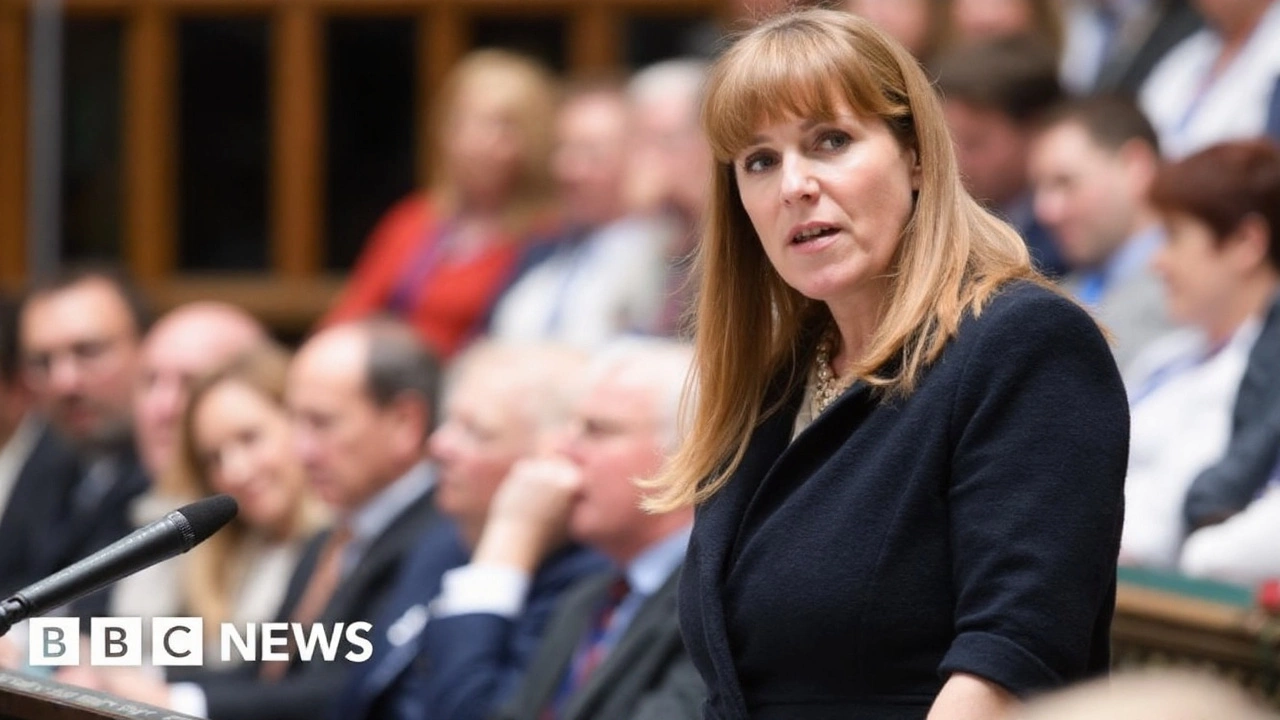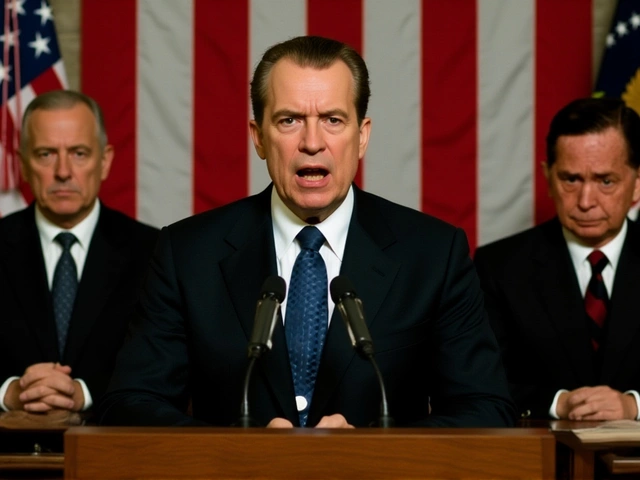What happened and what we know
The UK’s Deputy Prime Minister, Angela Rayner, resigned on September 5, 2025, following an ethics inquiry into whether she underpaid tax linked to a home purchase. The government confirmed her departure but did not release the full findings. At this stage, officials have not set out the size of the alleged underpayment, when it occurred, or whether any formal penalty was issued. That lack of detail leaves key questions open while the political fallout begins.
In Whitehall, ethics cases involving ministers usually run through the Cabinet Office and the Independent Adviser on Ministers’ Interests. The adviser assesses potential breaches of the ministerial code, which requires ministers to uphold the highest standards of propriety and to be honest and open in handling their affairs. While the adviser can investigate and report, the Prime Minister ultimately decides on consequences. Resignation, dismissal, or a reprimand are all possible outcomes depending on the findings.
Tax disputes can unfold on two tracks. HM Revenue & Customs (HMRC) handles the tax facts and any liabilities. The ethics process looks at conduct: whether a minister made full declarations, corrected errors promptly, and avoided conflicts of interest. You can be compliant with tax after settling a bill and still face questions about judgment under the ministerial code. Conversely, even a small unpaid amount can trigger a large political problem if it looks like special treatment.
Rayner is no stranger to scrutiny over property and tax. In 2024, Greater Manchester Police reviewed claims about the sale of her former council house and took no further action. HMRC also indicated at the time it was not pursuing the matter. The new case is framed more narrowly around underpayment tied to a home purchase, suggesting a different set of facts from the 2024 row, though the government has not said how the two episodes relate, if at all.
What is clear is the scale of the moment. The Deputy Prime Minister is not a statutory role, but it sits at the heart of government and signals political authority. Rayner’s exit leaves a gap at the top table and forces the Prime Minister to move quickly on a replacement to steady the cabinet and the party.
Here is what is known so far:
- Date of resignation: September 5, 2025.
- Reason cited: ethics inquiry into alleged underpayment of tax on a home purchase.
- Open questions: size and timing of the underpayment, whether a penalty was paid, and whether any other ministerial code issues were identified.
And what remains unclear:
- Whether the government will publish a summary of the ethics report and when.
- Who will be appointed as the next Deputy Prime Minister and how soon.
- Whether Rayner will continue in any other political roles.
This is not the first time a senior UK figure has faced a political reckoning over taxes. In 2023, Nadhim Zahawi was removed from cabinet after the ethics adviser found he had failed to declare an HMRC penalty relating to a settlement. That case set a modern benchmark: even when tax disputes are resolved, how they were handled can topple a minister.

Why it matters and what comes next
Why does this land so hard? Because tax is a trust issue. The public expects the people who set the rules to follow them—and to be transparent when they fall short. When ministers face tax questions, the political cost spreads fast: it hits personal credibility, the government’s standards message, and the Prime Minister’s authority to police the code.
Rayner’s role amplified that risk. As Deputy Prime Minister, she was central to political strategy, cabinet management, and day-to-day firefighting. Her departure will ripple through several files at once—housing, local government, and the government’s broader cost-of-living and public service agenda—regardless of who fills the chair next.
Expect a rapid response from No. 10 on three fronts:
- Continuity: an acting deputy or senior cabinet figure will likely be asked to cover Rayner’s cross-government coordination until a permanent appointment is made.
- Standards: Downing Street will weigh publishing at least a summary of the ethics findings to show the process was fair and decisive.
- Politics: the government will try to show it is moving on with policy announcements and parliamentary business to contain the story.
What could a replacement process look like? The Deputy Prime Minister is appointed at the Prime Minister’s discretion. The post often goes to a political heavyweight who can land arguments at the despatch box and hold the party together in rough seas. The PM could tap a trusted ally to shore up discipline, or a consensus-builder to reassure wavering MPs. Either way, the choice will double as a statement about stability and standards.
Will there be legal or tax consequences beyond the ethics process? That depends on HMRC. If an underpayment occurred, HMRC can require the tax plus interest and, in some cases, a penalty. None of that requires public disclosure by law. The political system, however, often forces sunlight: when ministers pay a settlement, the ethics adviser typically needs to know, and pressure mounts for transparency.
Parliament will want answers. Committees may request documents or testimony on the timeline of the inquiry, how any tax issues were identified, and whether conflicts were managed. Even if the government withholds specific tax data on privacy grounds, MPs will push for clarity on process: who knew what, when, and how decisions were made.
The timing matters for markets and policy too, not because investors track the Deputy PM’s portfolio line by line, but because it speaks to bandwidth. Cabinet resets consume time—reshuffles, briefings, redrafted speeches. Every hour spent on repair work is an hour not spent selling the government’s economic plan. The sooner the appointment is made and the ethics report addressed, the faster the government can reassert control.
For Rayner personally, the path back—if there is one—runs through transparency. Ministers who have rebounded from scandals have tended to publish as much as they can, accept responsibility for any mistakes, and show they’ve fixed the root cause. That might mean setting out the details of the home purchase, tax treatment, and any correspondence with HMRC, assuming legal and privacy constraints allow.
For voters, the broader question is consistency. Standards rules only work if they apply the same way to every minister. The government will know that the bar is now set: if future cases arise, they will be judged against how this was handled. That makes the handling of the report—and any follow-up disclosures—a test case for this term.
A few practical takeaways on how ministerial ethics cases tend to proceed from here:
- Report publication: The government often releases a summary of the adviser’s findings, even if personal tax details are redacted.
- Cabinet changes: Expect a swift appointment to avoid a vacuum at the top of government.
- Parliamentary scrutiny: Committees may open inquiries to examine process and timelines.
- Tax resolution: HMRC handles the numbers; ministers handle the politics. Settlements, if any, usually come to light through the ethics route.
None of this answers the immediate unknowns about the alleged underpayment. But it explains why this story will not fade quickly. A vacancy at the top table, a live ethics question, and a public mood that is unforgiving about tax—those ingredients keep pressure high. However the details land, the government now has to show it can enforce its own standards, fill a key role fast, and get back to governing.
The facts at the core remain simple: a senior figure faced an ethics test over tax and left office. What comes next—the clarity of the report, the choice of successor, and the pace of policy—will decide whether this is a short chapter or a defining moment for this government. For now, the phrase that will define the day sits on every front page: Angela Rayner resignation.






Written by Barclay Westmoreland
Hi there! I'm Barclay Westmoreland, an entertainment expert with a passion for all things cruise-related. As a seasoned traveler and performer, I've had the privilege of exploring the world's most luxurious cruise lines and have made it my mission to share my experiences with others. I thoroughly enjoy writing about the latest trends, exciting destinations, and unique onboard experiences, aiming to inspire and inform fellow cruise enthusiasts. Whether you're a first-time cruiser or a seasoned sailor, I'm here to help you navigate the vast world of cruise entertainment.
All posts: Barclay Westmoreland